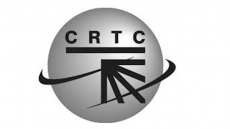STOCKHOLM - U.S.-British scientist John O'Keefe and Norwegian scientists May-Britt Moser and Edvard Moser won the Nobel Prize in medicine on Monday for discovering the "inner GPS" that helps the brain navigate through the world.
Their findings in rats — and research suggests that humans have the same system in their brains — represented a "paradigm shift" in the knowledge of how cells work together to perform cognitive functions, the Nobel Assembly said, adding that could help scientists understand the mechanisms behind diseases like Alzheimer's.
"This year's Nobel Laureates have discovered a positioning system, an 'inner GPS' in the brain, that makes it possible to orient ourselves in space," the assembly said.
O'Keefe, 75, of University College London, discovered the first component of this system in 1971 when he found that a certain type of nerve cell was always activated when a rat was at a certain place in a room. He demonstrated that these "place cells" were building up a map of the environment, not just registering visual input.
Thirty-four years later, May-Britt Moser and Edvard Moser, a married couple at the Norwegian University of Science and Technology in Trondheim, identified another type of nerve cell — the "grid cell" — that generates a co-ordinate system for precise positioning and path-finding, the assembly said.
"This is crazy," an excited May-Britt Moser, 51, told The Associated Press by telephone from Trondheim.
She said her husband, 52, had not yet found out about the prize yet because he was flying to the Max Planck Institute in Munich, Germany, to demonstrate their research. She said they had been a couple for 30 years.
"This is such a great honour for all of us and all the people who have worked with us and supported us," she said. "We are going to continue and hopefully do even more groundbreaking work in the future."
Hege Tunstad, a spokeswoman at the university in Trondheim, said May-Britt Moser "needed a minute to cry and speak with her team" when she found out about the prize.
The Nobel Assembly said knowledge about the brain's positioning system may "help us understand the mechanism underpinning the devastating spatial memory loss" that affects people with Alzheimer's disease.
The discoveries have also opened new avenues for understanding cognitive functions such as memory, thinking and planning, it said.
"Thanks to our grid and place cells, we don't have to walk around with a map to find our way each time we visit a city because we have that map in our head," said Juleen Zierath, chair of the medicine prize committee. "I think without these cells we would have a really hard time to survive."
All three Nobel laureates won Columbia University's Louisa Gross Horwitz Prize last year for their discoveries.
A Canadian researcher had been among those touted as a potential winners of this year's Nobel Prize for medicine by an organization that predicts which scientists are most likely to take home one of the coveted awards.
Dr. Stephen Scherer, director of the Centre for Applied Genomics at the Hospital for Sick Children in Toronto, was selected as a 2014 "Nobel-class" citation laureate in physiology or medicine by Thomson Reuters Intellectual Property & Science. The organization has correctly predicted 35 Nobel Prize winners since 2002.
Scherer, along with Charles Lee, scientific director of the Jackson Laboratory for Genomic Medicine in Farmington, Conn., and Michael H. Wigler, head of the Mammalian Cell Genetics Section at the Cold Spring Harbor Laboratory in New York, have been recognized for the discovery of large-scale copy number variations and their association with specific genetic diseases.
Scherer had said he was astounded and surprised by the honour, calling it "a big, big thing."
The Nobel awards in physics, chemistry, literature and peace will be announced later this week. The economics prize will be announced next Monday.
The winners of each category split the prize money of eight million Swedish kronor (about $1.2 million Cdn). Each winner also receives a diploma and a gold medal.
Created by Swedish industrialist Alfred Nobel, the Nobel Prizes were first awarded in 1901. The winners always collect their awards on Dec. 10, the anniversary of Nobel's death in 1896.
Last year's medicine award went to researchers who discovered how substances are transported within cells, a process involved in such important activities as brain cell communication and the release of insulin.




